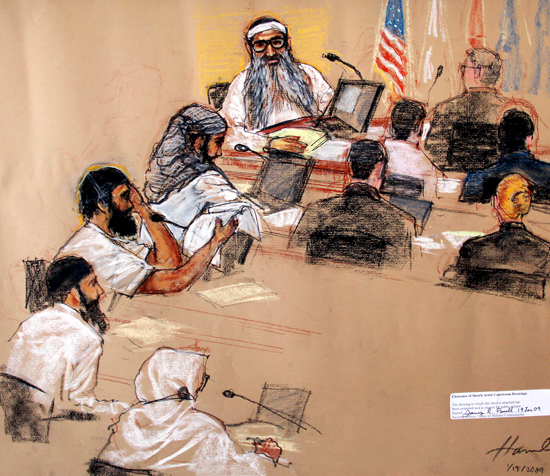The Obama administration’s decision to try alleged 9/11 terrorists in federal court is risky on numerous accounts.
In the event that any of these suspects are found innocent, everyone from Attorney General Eric Holder to the president himself would face a tidal wave of criticism, and the Justice Department would also have a difficult time convincing the public that it can handle terrorism cases. But to avoid risk is not to govern righteously ““ a nation that stands for justice must apply justice to all those who land at the feet of American inquisition with an equally high standard. The terrorists should be tried in federal court.
There are plenty of points for those opposed to the administration’s decision. For one, the civilian court must exclude any evidence obtained while the suspect was under duress. This claim is baseless because it cowardly treats the problems symptomatic to the use of torture instead of facing the difficult question of torture itself. According to the Department of Defense’s “Fact Sheet” on military commissions (aka tribunals), even those tried in tribunals are already afforded “suppression of statements obtained by torture or in violation of the Detainee Treatment Act of 2005.”
So anyone advocating the use of military courts while citing the civilian courts’ inability to handle these cases is arguing that the courts can shirk the laws that govern both legal systems. This argument replaces credibility and judicial prudence with convenience. The administration is thus justified in its insistence on legitimacy in the prosecution of these terrorists. Holder’s risk-taking is laudable in that it demands that terrorism be treated as a different type of threat than conventional warfare.
The last time military tribunals were really used was World War II, where there were clearly defined, uniformed soldiers and prisoners of war. But fighting terrorism differs from conventional warfare in that the war on terror cannot be won by eliminating individuals. Given the shifty status of many detainees being held without being charged, a fair trial is crucial in protecting the reputation of American justice.
All this is not to say that the administration has been right all the time. The geographic attachment to New York as the site is a bit campy. These were attacks on New York, and New Yorkers are more intimately aware of the tragedy and its consequences than, say, Californians. But justice is not about intimacy.
These men allegedly committed crimes against the United States, and it is for this reason that the attorney general will personally prosecute these cases. Locating the trials in New York will only end up in protracted jury selection. Though any American court would make jury selection difficult, New York is obviously the focal point of the emotional and personal biases that complicate all of this. For all of these reasons, the administration must choose justice over convenience.
At the heart of this controversy is a much further-reaching problem that is going unnoticed. There is a very real distrust of the American justice system at the heart of much of this brouhaha. The sentiment that Holder’s critics are really giving voice to is that our courts are too fussy to handle terrorism cases even though it is fine for rapists and murderers to face these courts. To cut corners by using tribunals is not the answer to any of these misgivings. Like the anxiety over evidence obtained through torture, the worry that the court system cannot handle these trials should be evaluated as a statement of public faith (or lack thereof) in the system ““ not as justification for the militaristic abuse of tribunals.
Pining for a seat on the jury? E-mail Makarechi at
kmakarechi@media.ucla.edu. Send general comments to
viewpoint@media.ucla.edu.
